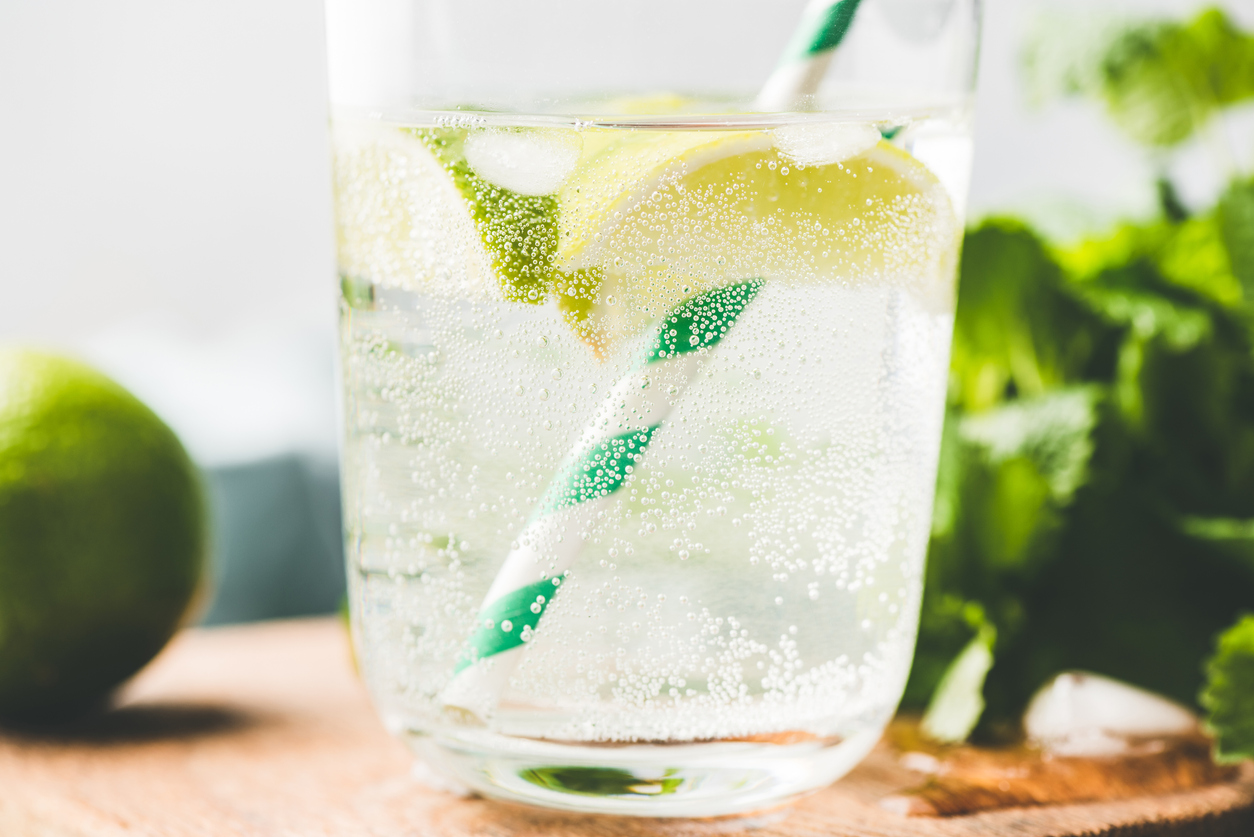After decades of sparkling water being a largely European trend, the American public is finally jumping on the bandwagon. Refreshing flavors and the pleasant bubbling sensation aside, the growth of sparkling water consumption in the United States has led many to wonder about the effects of carbonation on teeth. Is carbonation harmful for your teeth or not?
We have known for decades that sodas are harmful. The sugar alone is enough to give most dentists nightmares. However, the general population knows far less about the effects of carbonation on teeth. Is the process of carbonation in itself harmful, or is it simply the additives were so used to hearing about?
Understanding pH Levels and Your Teeth
As UCLA Health explains, sparkling water is created by dissolving carbon dioxide gas in plain water. The process creates carbonic acid, that lovely little compound responsible for the fizzing and slight tartness associated with sparkling water. Unfortunately, carbonic acid does have another effect. It decreases the pH level of the water. These solutions lower pH levels mean that they are more acidic, prompting people to ask whether sparkling water is harmful to their teeth.
Still water has a pH of 7. This is the neutral space on the scale from acidic to basic. The Center for Science in the Public Interest states that most seltzers and sparkling waters have a pH of about 4, but some brands and flavors range closer to 3. Technically, materials with an acidity of 3 to 4 can erode your teeth. So, in a scientific vacuum, it is true that sparkling water could cause enamel damage over time.
Contextualizing the Data
In truth, there are several factors you should consider before simply throwing your sparkling water off the balcony. The pH levels vary based on brand and flavoring. The minerals added to many sparkling waters balance the pH levels, showing little to no difference in their effect on your enamel, according to the American Dental Association. However, citrus flavors can also decrease the pH level of your water, further making them potentially more harmful than other flavored liquids.
Additionally, if you are eating while enjoying your favorite seltzer, then you are actively changing the pH level of the liquid as you ingest it. This means that your sugar-free seltzer is even less likely to cause lasting damage, especially if you’re brushing after your meals. As with most health decisions, context matters in this case when determining if carbonation is harmful for your teeth.
Choosing the Right Sparkling Water
Depending on your choice of sparkling water, you may have nothing to worry about when it comes to your teeth. Club soda and sparkling mineral waters both have pH levels considerably higher than 4, which is where issues begin to appear. However, this only applies to sugar-free options with non-acidic flavors.
If you prefer sugar-free sparkling waters with acidic flavors like lemon or orange, then make sure you only drink those during a meal. Skip those with added sugar entirely. You might as well drink a soda when it comes to taking care of your teeth.
Don’t Let it Replace Still Water
Even if you find that your favorite drink with carbonation is not harmful for your teeth, the American Dental Association reminds us that it is still important that we drink plenty of still water. Much of our water contains fluoride and actively protects your teeth from cavities. Therefore, you shouldn’t see sparkling water as a replacement. Rather, treat it as a nice treat for a hot day and place a little sprig of mint on top. Give the herb a chew or two for an extra antibacterial boost.
If you are concerned about your current habits and what effect they may have on your teeth, don’t hesitate to speak with the experts at OC Dental Specialists. Whether you need help with preventative care or restorative dentistry, their team will be able to get you the help you need.

